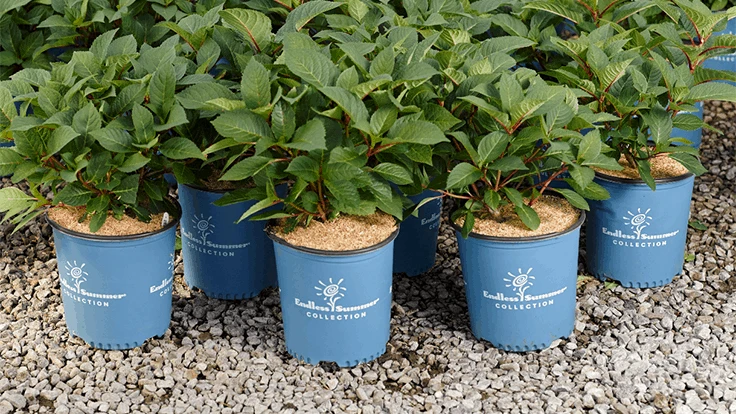

In today’s business market, it’s essential to watch your nursery’s bottom line. At Willoway Nurseries, using PBH rice hulls from Riceland Foods, Inc. as a topdressing material to control weeds is part of its formula to success, according to Beth Murray, production administrator at the nursery. Willoway has locations in Avon and Huron, Ohio, and using the rice hulls brings a myriad of cost-effective and sustainability advantages to the business. One of the things Murray enjoys most about the product is that the rice hulls are something any nursery can feel good about using.
“We also use it as a soil amendment, it’s environmentally friendly and it’s sustainable. We’re also utilizing a co-product — so the rice is removed, and what is left is the actual hull,” Murray says. “So that goes through a process, and we’re taking something and utilizing a co-product, so you’re getting a double use out of it.”
On top of the environmental benefit, Murray says that using the PBH rice hulls has reduced costs and increased profit margins at Willoway, which sets them apart from the competition. The greatest cost reduction Willoway has seen is a decreased dependency on herbicide applications — far costlier than using a rice hull, she points out. It reduces weed suppression for weeks, while reducing some of the nursery’s reliance on herbicide applications.
This has allowed Willoway to reduce its herbicide applications in their container production, which reduces plant stress and saves dollars. The rice hulls also provide silica to the plants, and they help to lock in water retention.
Ease of use is another big draw for Murray. Previously, the team applied the hulls by hand, but now they use a mechanical rice hull applicator, which provides an even distribution of rice hulls into the containers.
“We have had the rice hull applicator for two years now. The ROI there was huge as far as reducing the reliance on the person to actually apply the application,” Murray says. “As far as the labor issue goes — and not only the reduction of the herbicide dependence — we also do not have to spend labor dollars pulling weeds or making sure that our product is clean.”
She also notes that the applicator itself is easy to use and contains an exhaust release, so it’s never dusty or dirty.

“We have not had any problems with it. You would stop to think, ‘Well maybe there would be some rice left over’ and once in a while you’ll find a piece, but that’s it. It’s always a very clean product, easy to use and we really feel that it’s essential to use here,” she says.
Murray says they apply the rice hulls 2 inches deep for 3-gallon containers and 1½ inches deep for 1-gallon containers.
“We want a good solid application so that when it gets watered in, it’s settled, and that helps keep the weeds suppressed,” she says.
Between the nursery’s three locations, it spans about 750 acres under production. The Avon facilities produce a mixture of field, pot-in-pot and container production. The Huron facility grows a mixture of containerized shrubs, as well as field production of evergreens.
From Murray’s perspective, the PBH rice hull topdressing is a cost-effective approach to weed management.
“We’ve been using the rice hulls from Riceland for quite a few years now. So, we’ve definitely seen a decrease in our cost and that increases our profit and the benefits have been huge for us,” she says.
For more: www.willowaynurseries.com; www.riceland.com/pages/rice-hull-products

Explore the August 2020 Issue
Check out more from this issue and find your next story to read.
Latest from Nursery Management
- Sam Hoadley talks about Mt. Cuba Center's latest evaluation of Solidago sp. for the Mid-Atlantic region
- Countdown to shutdown
- From growing plants to growing people
- Weed Control Report
- Advocacy in action
- Rare Life Plants: A place for the unique
- Crisis of confidence
- A letter from the sponsor: Janna Beckerman, Envu






